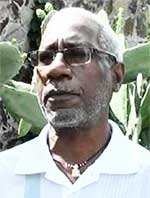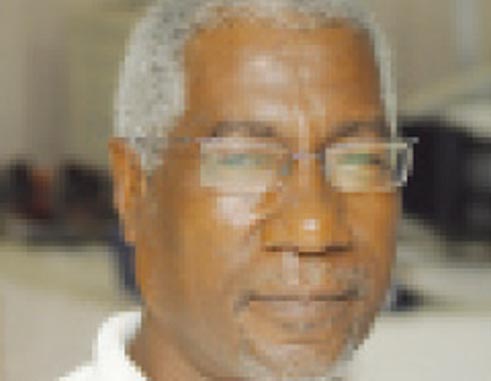
CARICOM Summits are usually treated by the Caribbean press like annual family gatherings of the elected leaders of national branches of the regional family, with hardly ever any elephant in the room.
The three-day meetings usually end with a wordy Final Communique long enough to reflect the major decisions agreed by the gathered ‘elders’ on behalf of the wider Caribbean family.
But the 40th Summit that opened at The Royalton at Cap Estate last night can very well be the one that will most test the regional grouping’s ability to sit and speak with one mind on a regional and international issue that has implications for all, but on which the 15-member body is surely and sorely divided: Venezuela.
CARICOM has spoken with one voice on Venezuela at its own regional gatherings, but the leaders have also been saying very different things in different places, at different times.
Washington’s lobbyists have already undermined CARICOM unity at the Organization of American States (OAS), where five Caribbean states now openly vote with the US on Venezuela, while three have maintained their independence and seven have opted to refrain from taking sides.
CARICOM leaders who don’t approve of the US approach have largely refrained from talking to or through the regional press about the naked division best highlighted when four among them broke ranks to join the Dominican Republic (not a CARICOM member) to fly to Florida for secret talks with US President Donald Trump, especially about Venezuela.
Following the Florida parley, no details emerged about the discussions on Venezuela, but all four CARICOM states represented did vote with the US on April 9, 2019 to support the Venezuelan opposition-appointed nominees to fill the seat about to be officially vacated by Caracas 12 days later.
The Florida meet further complicated matters, as the US President clearly decided to exercise his option to be selective in which CARICOM leaders he would publicly invite to his private Palm Beach tete-a-tete.
On the day following the Mar-a-Lago meeting, Canada — leading promotion of Washington’s interventionist agenda within CARICOM — organized a hurried teleconference for US-backed ‘Interim President of Venezuela’ Juan Guaido to address CARICOM Foreign Affairs Ministers gathered in Barbados.
But while all of that was happening, CARICOM, as a unit, was already engaged in a multinational effort, along with Uruguay, Mexico and Bolivia, through the ‘Montevideo Mechanism’, to offer a proposal for a peaceful Venezuela solution that excluded external intervention.
The previous CARICOM Chairman, St Kitts and Nevis Prime Minister Dr Timothy Harris, represented the grouping at several such meetings in Uruguay and Ecuador, as well as with the Office of the UN Secretary General and with representatives of the European Union (EU) and the International Contact Group.
CARICOM also appointed the Prime Ministers of Barbados, St Vincent and the Grenadines and Trinidad & Tobago as its main interlocutors on Venezuela.
But President Trump decided to bypass CARICOM and its representative group altogether and only speak about Venezuela with those leaders who clearly support the US position — and that he got willing listening ears has understandably caused some concern among some CARICOM leaders.
Those who continue to stand with Washington on Venezuela will most likely have to justify their stance today in light of recent developments, including: the failed but violent US-backed April 30 military coup attempt to remove the elected President Nicolas Maduro; the interception of another coup plot on June 23; US sanctions hurting ordinary Venezuelans most; Guaido’s calls for more sanctions and US military intervention; and acknowledged embezzlement by Guaido’s appointees of funds raised through a benefit concert on the Colombia-Venezuela border (sponsored by Virgin Atlantic Chairman Richard Branson) to assist Venezuelans.
Even more troubling is that the Government of Haiti – the poorest CARICOM member-state — has now been accused of and is being investigated for missing billions of US dollars’ worth of PetroCaribe oil made available by Venezuela.
Yes, all the 15 flags of CARICOM member-states will fly and flutter high at The Royalton for the rest of today and all of tomorrow, but Venezuela could very well be the big invisible elephant in the room.
The three leaders who have consistently opposed Washington’s interventionist approach are not about to change their positions; the ex-chairman and the three appointed leaders consistently ignored by Washington are not likely to ignore that real fact; and the seven states that have always abstained (in OAS votes) have shown no sign they are about to change.
But with Washington’s and the Lima Group’s lobbyists having succeeded in breaking CARICOM’s unity and its traditional vote-balancing role at the 35-member OAS, there are real concerns, if not fears, in some regional circles, including among some leaders, that similar powerful lobbying efforts in Caribbean capitals ahead of the Saint Lucia Summit could very well result in further dividing of CARICOM over the Venezuela issue.
The leaders’ Venezuela discussion, whether today or tomorrow, will require the summoning of all the new Chairman’s accumulated understandings of the intricacies of Caribbean protocol and diplomacy to guide his 14 colleagues through what is not likely to be like presiding at a leadership meeting of a mutual admirers’ club.
Far from singing from the same hymn sheet, the leaders will surely part ways over Venezuela during their Royalton talks, even though they will also agree, as always, on how best to polish the wording of the final declaration approved for public consumption of the Caribbean family, which will also predictably accentuate the positive.
By Saturday, however, all will be clear – even though not all will be all that clear to those who will be left to wonder to what extent the agreed words truly reflect the truth, the whole truth and nothing but the truth, about who said what, when, why and where – especially on Venezuela.
By which time too, the genie elephant will also have returned to its lamp – until the next time…






